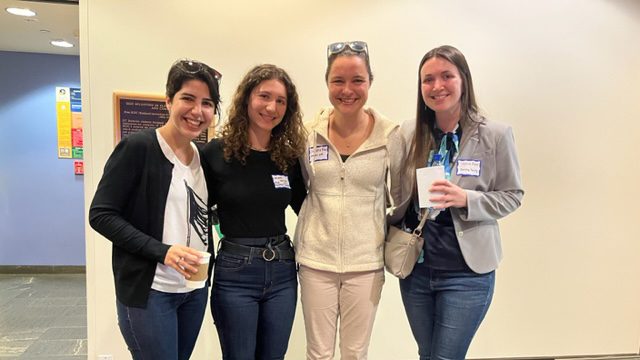9th Annual Berkeley-Stanford meetup celebrates the 45th anniversary of WiCSE

The 9th Annual Berkeley-Stanford Women in EECS research meetup took place on Saturday, April 29th in the Wozniak Lounge, Soda Hall. The meetup offers all female-identifying, transgender, non-binary, and gender non-conforming graduate students a chance to learn about each other’s research and to network with alums from industry and academia. The daylong event featured a panel of faculty from both Berkeley and Stanford, as well as recent alums in industry. Throughout the day graduate students presented their research highlights. Stanford EE Assistant Professor Dorsa Sadigh (EECS Ph.D. ‘17), gave a keynote speech. The meetup marked the 45th anniversary of Berkeley’s Women in Computer Science and Electrical Engineering (WiCSE). Professor Susan Graham, the first woman appointed to the CS faculty in 1971, shared remarks on the history and value of WiCSE. “What a wonderful group of students!” said Graham. “I was impressed with the brief research talks, and with the conversations I had.”